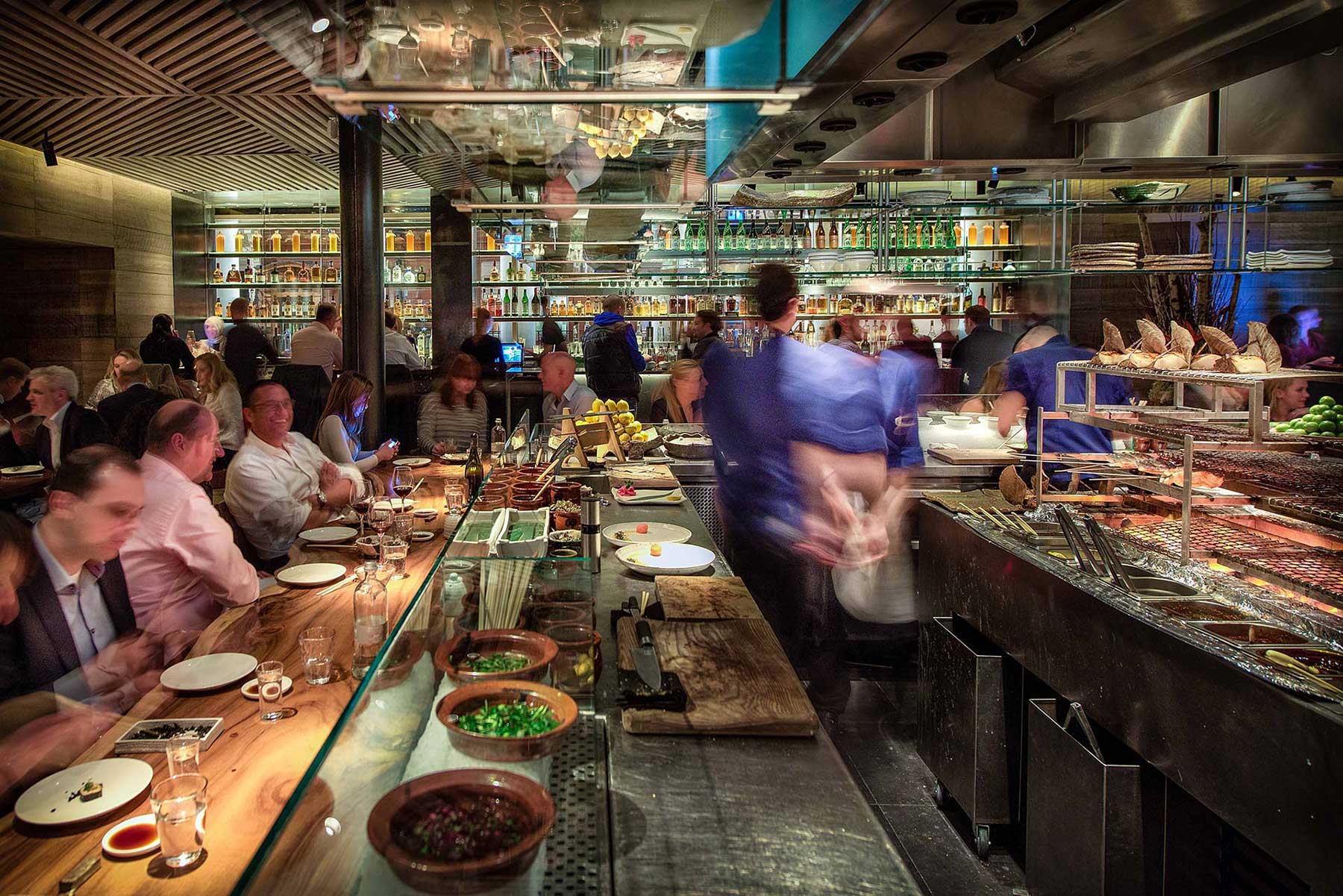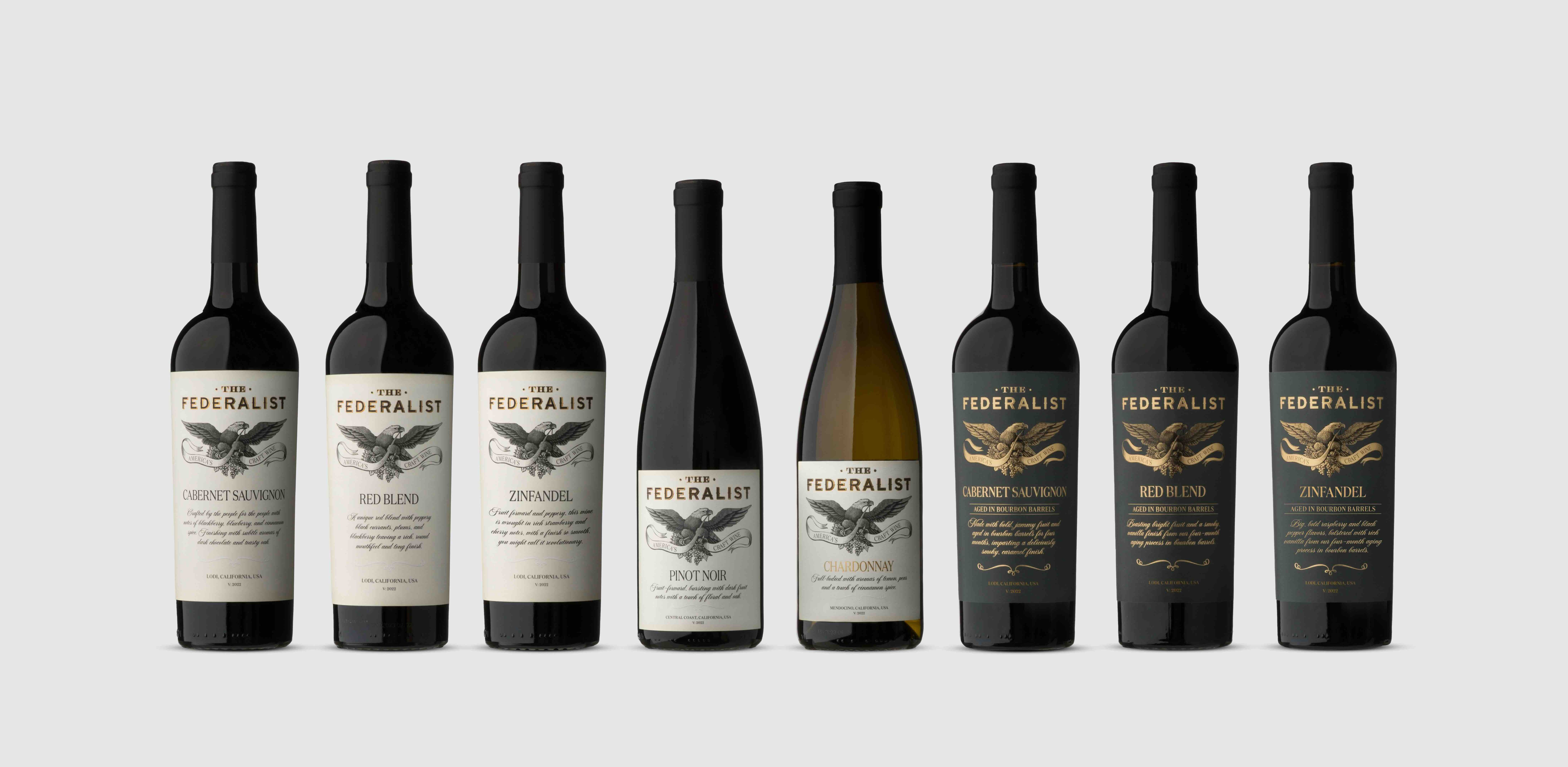If you have Koshu wines on your list then you’re part of quite a select group of discerning buyers willing to put your faith in this delicate Japanese wine. But those that have can’t speak more highly of a style of wine like no other in the world. Intrigued? Well read below and taste them for yourself at next week’s Koshu of Japan tasting in London.
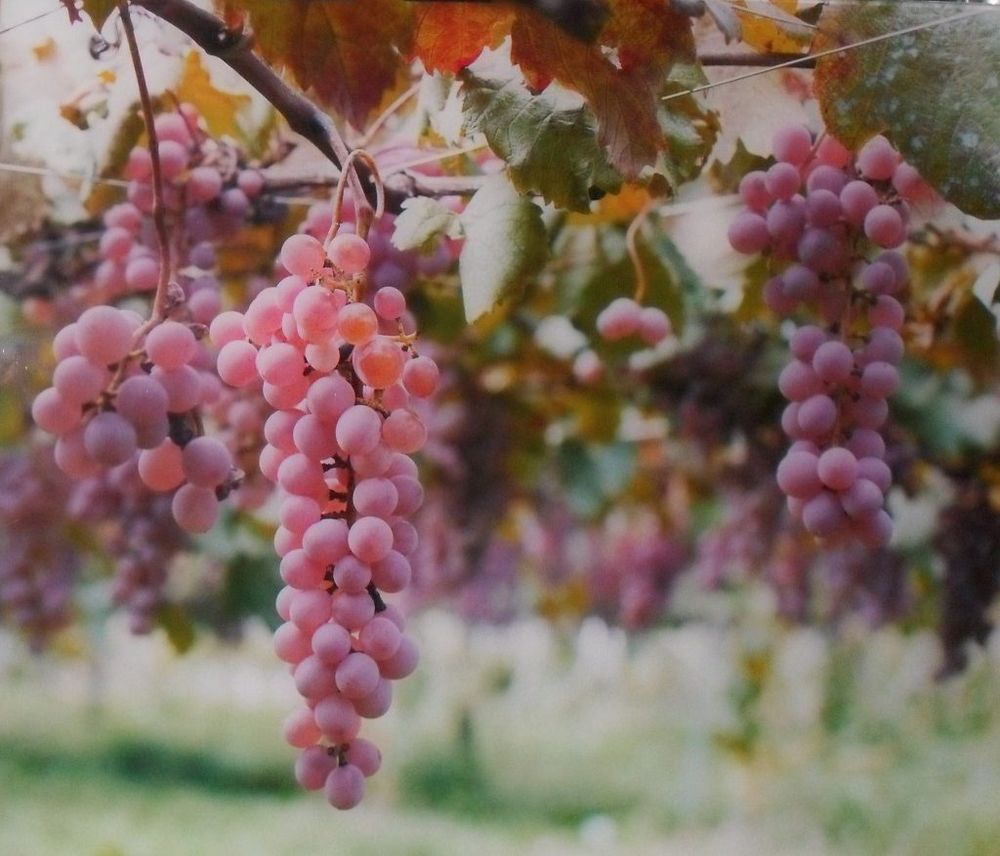
The distinct, thick-skinned, pink coloured Koshu grapes
Adventurous sommeliers and wine buyers across the premium on-trade are constantly on the look out to try new grape varieties and styles of wine. It’s what makes working in the wine trade, particularly at the more rarefied ends of it, such a constantly exhilarating and dynamic career to be in.
But for all the desire and ambition to find something new, how often do we genuinely come across a new grape variety, or wine region with the quality of wine good enough to sell and make some money out of?
Well, can we introduce you to Koshu wine – arguably Japan’s best kept (drinking) secret. Hands up, though, anyone who can honestly say they could pass with flying colours a short examination on everything to do with Koshu wines?
Don’t worry you won’t be alone. A quick survey of leading buyers, Masters of Wine and Master Sommeliers amongst them, resulted in a surprising response. A fair proportion had not had the chance to taste enough to give an opinion. Now how often does that happen?
One tasting at a time
That should perhaps not come as a big surprise for Koshu of Japan, and the nine Koshu producers it helps promote, is still very much at the beginning of its export story, reaching out to buyers and influencers, one tasting at a time.
Not that Koshu itself is at the beginning of its own life. Far from it. Its origins date back at least 1,000 years in the unforgiving Katsunuma region in Yamanashi in the foothills of Mount Fuji. As a result it is one of the world’s hardiest grape varieties, thanks to its thick skin, and is particularly resistant to disease and capable of growing in the harshest of conditions, says Sarah Abbott MW, who has helped advise a number of Japanese wine producers on their export strategies and is an advisor JFOODO (Japan Food Product Overseas Promotion Centre).
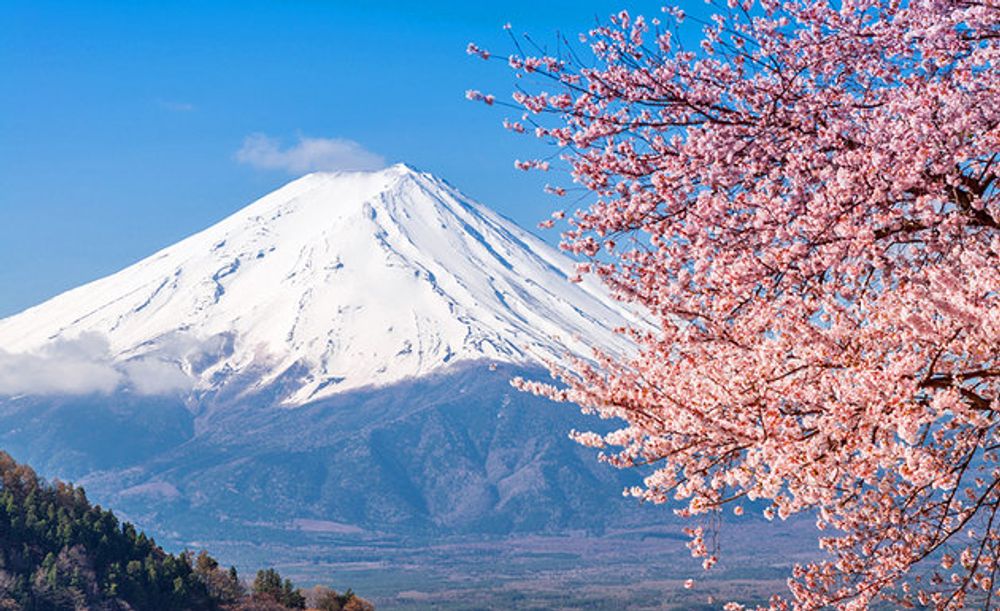
Koshu grapes are grown in what can be the harsh weather conditions in the foothills of Mount Fuji
But what should you expect if you go? Abbott gives her take: “Koshu has fresh but rounded acidity, and several aromatic compounds in common with Sauvignon Blanc. The most familiar Koshu style is an ultra-delicate, subtle dry white with a sleek texture.”
Laura Blanchett, head sommelier and wine buyer at Roka, the award winning Japanese restaurant group, says the different production methods used to make Koshu wines means there are “many different expressions of the grape”. “But they are always made with a great deal of care and diligence deployed to ensure excellent quality,” she explains.
“Dry styles of Koshu produced in stainless steel are a great introduction to this exciting category, often crisp, citrus notes are balanced with a beautiful, savoury umami. All of which means they make for great, interesting food wines,” she adds.
Lynne Sherriff MW, European director of Koshu of Japan, says “Koshu is often referred to as the ‘Zen’ white wine of the world. “It is a term that Jancis Robinson MW has often used,” she says.
“During the (hey)days of Robert Parker, wines that were Mike Tyson-like, were more appreciated that those that were more delicate. Today, Koshu has grown in style and quality. The wines are cleaner, zingier, have more mouth-palate feel and accompany many more dishes.”
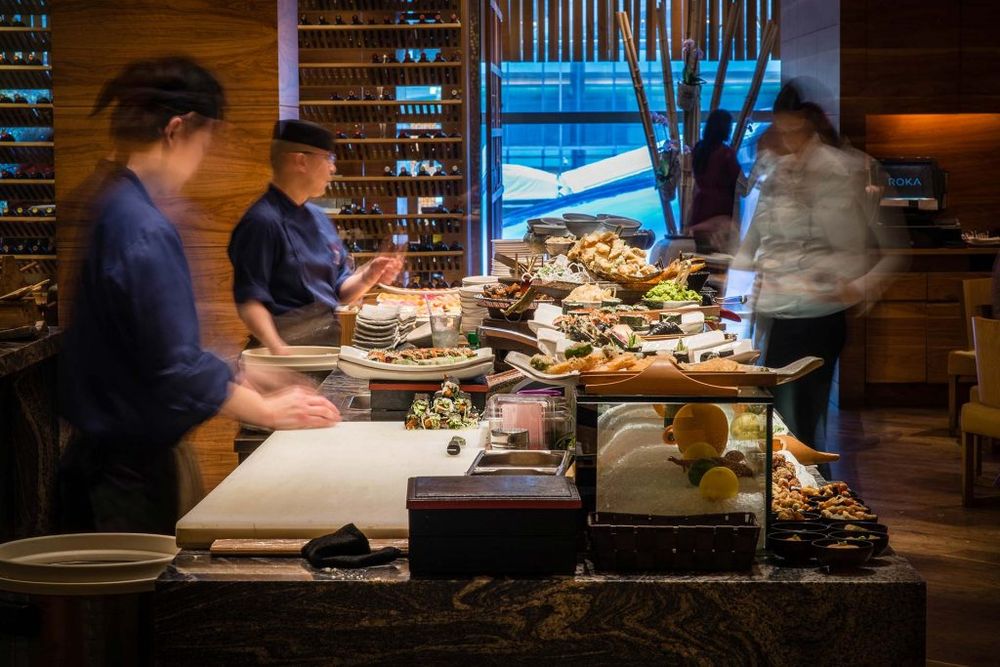
Koshu is not just the perfect partner to Japanese food like here at Roka
Major boost
Koshu wines were given a major boost when Hallgarten Druitt and Novum Wines, one of the country’s biggest national distributors, took on Koshu wines from Grace Wine.
Head buyer Steve Daniel explains why: “I believe in Koshu wines. We were one of the first major importers of Koshu. We chose Grace as we believe it is the best producer. I believe the wines have become more complex and interesting in recent vintages. Ayana Misawa is doing a great job as winemaker.”
Blanchett is certainly a fan: “Grace Koshu ‘Kayagatake’ is a favourite in the category of the wines we list. Particularly for the purity and elegance of the style, along with the fact that it falls at only 11.5% abv, perfectly placing this wine for the current lower alcohol movement.”
Distinctive style
Interestingly Michelin-starred chef, Roger Jones, of The Harrow at Little Bedwyn has become a big fan of Koshu wines, but not just because of their suitability for Japanese cuisine.
He explains: “We have stocked Koshu wines for four years at least and I love its distinctive style.For us it is not about Japan or Japanese food, but about purity and it was at a period when I was fighting hard to excel the virtues of clean focused wines with perfect mineralogy, wet stone etc. These wines hit the jackpot.”
He adds: “This is a wine that is perfect for today’s modern diner: fresh, clean, wet stone, low alcohol, linear and focused. Yes, it will never be a Grand Cru Burgundy, but it could be a Premier Cru Chablis style.”
Blanchett agrees that the quality of Koshu wines can be a surprise to some guests: “Due to the very limited production within Japan and, all of the additional associated costs, the wines are often higher in value. But at a recent pairing event we were fortunate to open some excellent bottles, which left guests drawing comparisons to some of Europe’s grande marques.”
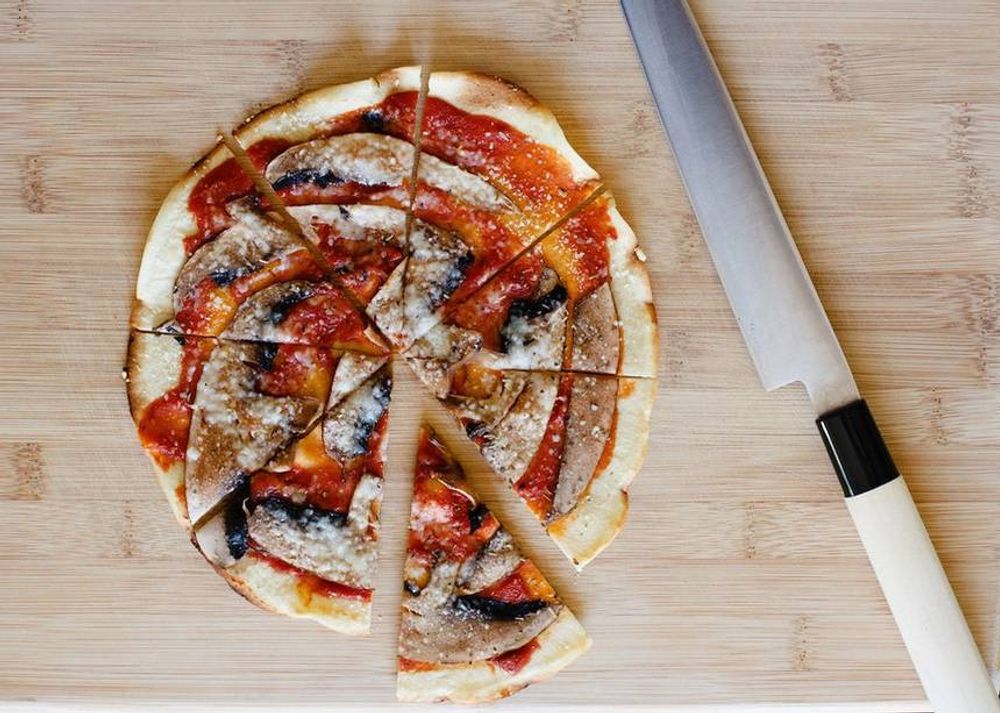
Blanchett believes umami rich dishes like Italian food would be ideal with Koshu wines
She also believes they are so well suited to cuisines that really play on the essence of umami. She explains: “These wines are very versatile with vibrant natural acidity, the slightly oaked styles also stand up beautifully to spice. I would be confident to suggest these wines with the umami rich cuisines of Italy, Spain or the levant.”
Sherriff adds: “We have certainly seen them work with Thai food, with oysters, and delicate fish and white meat dishes, and with Chinese food where there is not too much MSG to be found. Koshu with cod, haddock, monkfish, with some light Japanese citrus is awesome.”
But for Abbott there is still plenty of potential still to build on the surge in interest in quality Japanese restaurants. She explains: A small selection of Japanese wine has been offered for several years in the UK’s top Japanese restaurants. Recently, the new trend of ‘Anglo-Japanese’ cooking has been called “London’s new favourite”, and there is huge interest in Japanese cuisine, produce and drinks. All aspects of Japanese culture are intriguing to sophisticated young consumers, from the refined aesthetics of the tea ceremony, to the edgy energy of Tokyo nightlife.

Sarah Abbott MW believes there is great potential for Koshu alongside other Japanese wines
“This is reflected in the blossoming of high end, hip, fusion restaurants and bars that blend premium Japanese ingredients and techniques with a contemporary, young vibe. Currently, the Japanese section of the drinks list at these buzzing bars and restaurants is dominated by spirits and sake. But there is huge potential to showcase Japanese wine, like Koshu, in these influential and exciting venues.”
High standard
What’s particularly encouraging for Jones is to see the improvements in Koshu wines over recent years. “Every year the quality, and level, improves overall. The good stuff is so pure. I see similarities in sake. You either take it seriously or you don’t at all.”
The Guardian’s wine critic Fiona Beckett agrees that the quality of Koshu wine is very much there. “On the whole they are to a very high standard,” she told The Buyer. Encouragingly for UK buyers they also have the qualities she feels would work well here, particularly in seafood restaurants.“Crisp, young fresh and unoaked.”
Sheriff says the development in Koshu wines “have come about through improved vineyard practices, experimentation with different yeasts, controlled battonage and more controlled oaking, ie less over-oaking”.

Peter McCombie advises sommeliers to tread carefully and ensure their dishes can work with the delicate balance of Koshu wines
Restaurant consultant Peter McCombie MW also likes the fact the wines “are fresh, and quite delicate,” but concedes they could be “too delicate for some”. It’s why he would not automatically recommend them as a straightforward pairing with all Asian cuisine. “I think the spicing and direct flavours of some Asian cuisines can mask the delicacies of Koshu. Though, Cantonese could work.”
Paulo Basso, former Best Sommelier of the Year, certainly believes there is a future for Koshu wines in the UK, clearly in the growing number of premium Japanese restaurants. “I have tasted a lot of Koshu in different styles, and I think, at the moment, they are linked to the Japanese culture, and will find their best place in Japanese restaurants,” he says.
Building awareness

Hallgarten’s Steve Daniel says he “believes” in Koshu wines
The buyers, sommeliers and consultants we spoke to had some clear advice on how they feel Koshu of Japan can help spread more awareness about the wines.
Jones, for example, is quite clear: “It has to be by the glass.”
McCombie agrees: “They need to be poured in the on-trade. Their subtlety needs to be explained to consumers in advance.”
Blanchett at Roka believes it is important to spread their wings from outside Japanese restaurants: “I would love to see more availability and support alongside different cuisines, along with a greater market presence from more producers – Within the Roka Group we will continue to support Koshu with masterclasses and pairing dinners.”
Daniel believes “dry Koshu still wines are best suited to the UK market”. “Particularly those at Reserve and vineyard specific level. But unfortunately the UK is very competitive and therefore only Koshu offering good value will work.”
Sherriff agrees it is “bone-dry” styles that “seem to work best for the UK”. “The Koshu that have balanced battonage, along with the sparkling wines made in the traditional method.”
Future of Koshu

The Guardian’s wine critic Fiona Beckett believes Koshu of Japan should push Koshu with sushi
The premium on-trade is vital to the future of Koshu wines, says Sherriff. “We need to have these wines exposed to more sommeliers and top-end consumers and have them matched with food and wine. Recently, we paired baby pork with four to six month battonaged Koshu and it was delicious. Fish such as eel and mackerel are also a superb combination. The possibilities are endless.”
Fiona Beckett believes Koshu of Japan should simplify that food message andbe “constantly reinforcing the message it is the wine to drink with sushi”.
For Abbott it is essential Koshu of Japan continues to invest in educating the UK trade. “Providing opportunities to taste the wines is key to developing the profile of Japanese wines here in the UK. This market is always thirsty for new knowledge and keen to discover different wines from all over the world.”
Daniels agrees: “I would recommend more trips for key journalists and opinion formers to Japan to understand the wines, wine region and wineries. They are meticulously made and hand crafted wines that deserve to be taken seriously.”
- UK buyers will have the chance to discover Koshu wines for themselves at next week’s annual Koshu of Japan tasting, which will feature a number of their leading producers showing the new 2017 Koshu vintage alongside other Japanese wines, including their take on international varieties like Chardonnay, Cabernet Sauvignon and Merlot. The tasting takes place between 10am and 5pm at 67 Pall Mall, London on February 14 and also includes a series of specialists masterclasses. Register here for more details.
